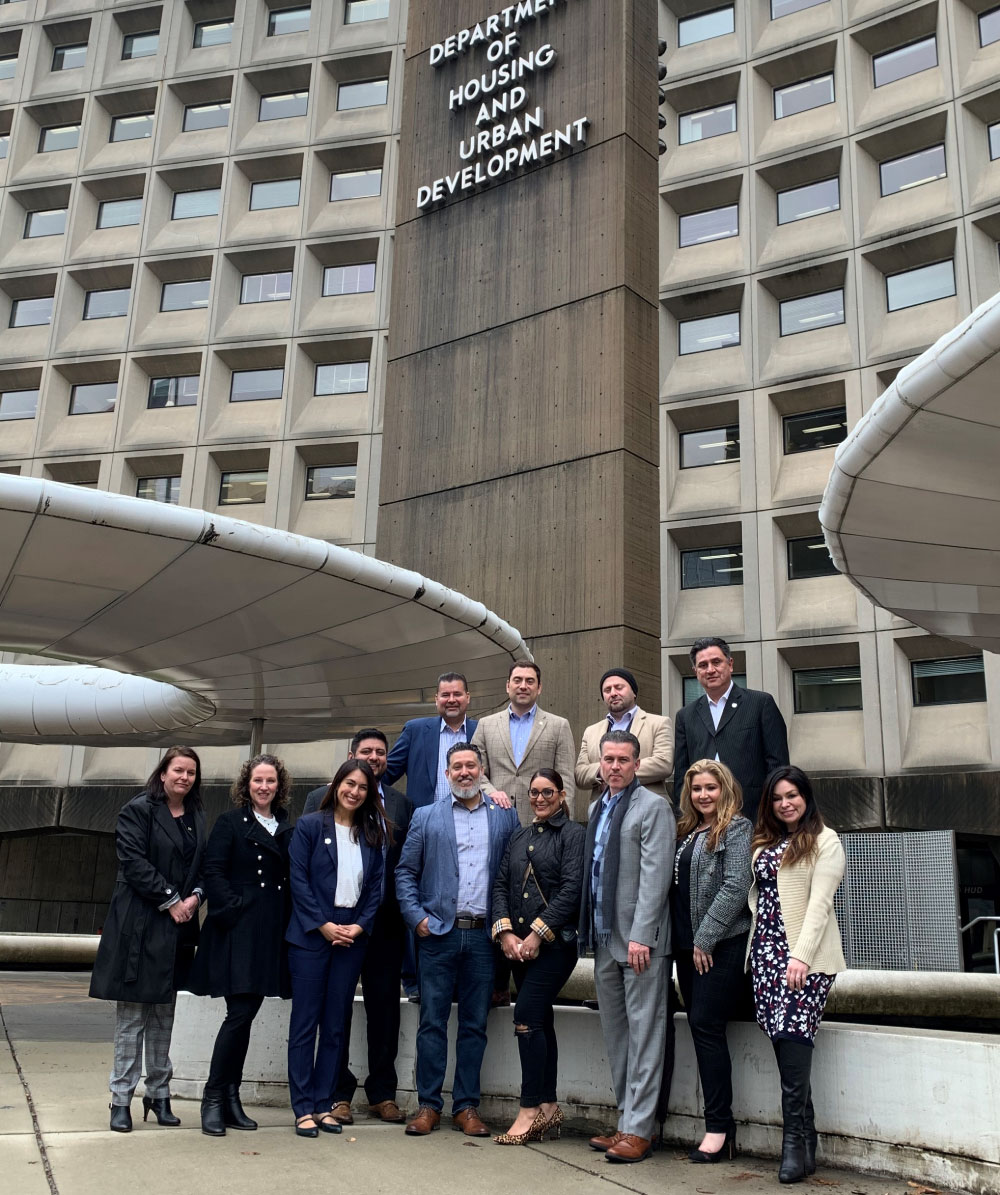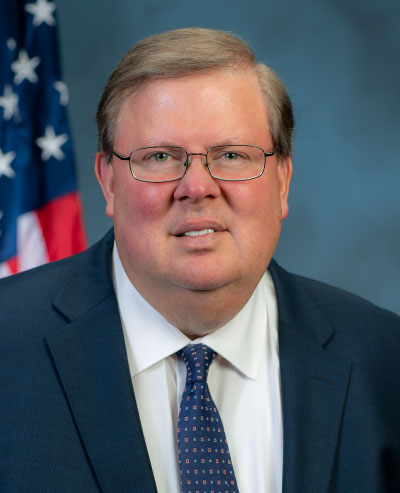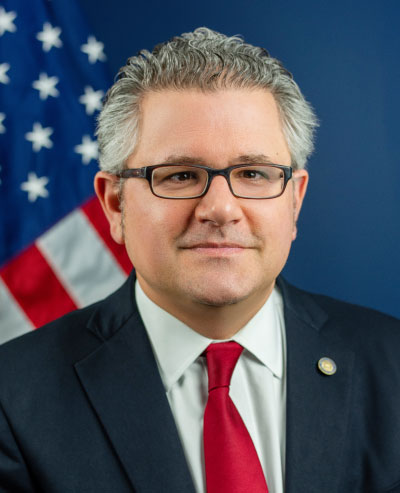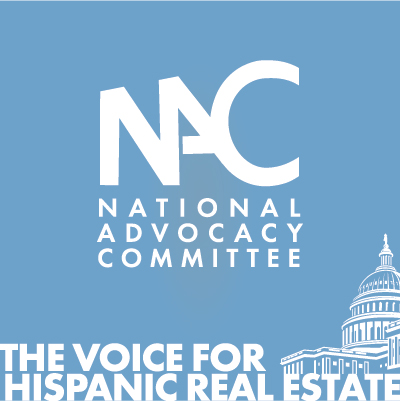NAC Blog:The Latest from FHA and FHFA
Celebrating NAHREP familia, cultura, politics, and grassroots action
Que onda mi gente?!
Como están? Hope everyone is making their plans to meet up in Washington D.C. next month! I was just there last week for meetings with the Federal Housing Administration (FHA) and Federal Housing Finance Agency (FHFA), to discuss some of the issues I’ve heard from many of you that are impacting prospective Latino homebuyers.
D.C. is my second home. It definitely felt like that this time around. For one, I was able to be there while the New Hampshire Primary results came in. In D.C., the sports team is politics. People make events out of things like election result nights, debates, and State of the Union addresses. Friends gather together in their homes or various bars will host watch parties, just like you would experience a basketball playoff! I love it.
I was also able to finally go to the famous restaurant Bad Saint. Bad Saint is a new Filipino restaurant that opened up right around the time that I left D.C. Bon Appétit magazine ranked Bad Saint as the #2 new restaurant in the U.S. and it is considered to be the most popular Filipino restaurant in America. I have tried four times in the past to go and failed miserably. Finally, FINALLY, I was able to put my name down and we made it in. If you can get yourself there, I highly recommend it. My favorite dish was the Ginataang Ulang, which is lobster, durian and coconut milk. Riquisimo! Let me know if any of you are able to make it while you are there for the 2020 NAHREP National Convention and Housing Policy Summit!
Here’s the skinny on updates from the federal housing agencies:

Federal Finance Housing Agency (FHFA)
What it does: FHFA was established in 2008 in response to the housing crisis. FHFA is tasked to supervise, regulate and oversee Fannie Mae, Freddie Mac and the Federal Home Loan Bank System.
Their mission is to ensure that the housing government sponsored enterprises operate in a safe and sound manner so that they serve as a reliable source of liquidity and funding for housing finance and community investment.
What we told them: We’re seeing a tightening of credit. Low down payment loans (3.5% down) that were eligible last year, seem to be getting rejected at faster rates. It is becoming more and more difficult to qualify people for these affordable products at Fannie Mae and Freddie Mac.
Key takeaway: The number one goal for FHFA right now is getting out of conservatorship. The FHFA Director is making the strategic adjustments necessary to achieve that. Everything else comes second. This explains why the GSE’s seem to be moving away from what they deem to be “riskier” products (i.e. low down payment loans).
Federal Housing Administration (FHA)
What it does: FHA provides mortgage insurance on loans made by FHA-approved lenders throughout the United States and its territories. Mortgage insurance protects lenders against losses from mortgage defaults. Under FHA loan programs, lenders can provide loans to low- to moderate-income borrowers and borrowers with lower down payments.
What we told them:
- DACA: We urged FHA to reverse their position to not insure loans for DACA recipients. Ultimately, FHA actions should not get ahead of the U.S. Supreme Court’s decision on DACA.
- Down Payment Assistance: In the past year, we have seen a reduction of access to down payment assistance programs. We provided real world examples of Latino families who relied on responsible down payment assistance programs to achieve homeownership. In many high cost areas with tight inventory, down payment assistance programs allow borrowers to compete for homes.
- Accessory Dwelling Units: High cost areas are exceedingly relying on income from accessory dwelling units to help pay for a mortgage. However, lenders need clarity on the appraisal report review process and guidance on when and how to use future rental income to qualify for the loan.
- Student loan guidelines: Many Latinos paying back their student loans are currently on an income-based repayment programs, allowing for lower monthly payments. However, FHA calculates payments at 1% of the unpaid balance when determining debt-to-income ratio, regardless of what the borrower actually pays. This practice increases DTI for many Latino borrowers significantly, making them ineligible for FHA loans.
Key Takeaway: FHA reassured that they are ready to absorb the affordable loan volume that the GSE’s seem to be moving away from. This is mostly good news, considering the tightening of credit noted above. However, at NAHREP we are concerned with the lack of choice that leaves consumers with. FHA insured loans can be costlier than conventional financing which can limit lifetime wealth building potential.
On the other issues, FHA said that as of now we should not expect any major changes to the FHA program or to its costs. They took our concerns and ensured that they would look into them.
Are you seeing other issues not listed above?
If any of you are seeing trends in the market that impact Hispanic homeownership, make sure to email me at nlimon@nahrep.org. These perspectives are what I carry with me when I talk to policy makers. But, if you want to hear from them directly, make sure not to miss these folks in D.C. next month!
Carrying on the conversation next month in D.C.

Brian Montgomery
HUD Deputy Director & FHA Commissioner

Mark Calabria
FHFA Director
Two of the most influential people in housing policy will be at the NAHREP National Convention and Housing Policy Summit next month! Brian Montgomery, HUD Deputy Director and FHA Commissioner, and Mark Calabria, FHFA Director, will both be speaking at our conference to share the Administration’s vision for the coming year. Make sure to buy your tickets so you can take part in this important conversation, as the decisions made around housing policy will directly impact your business and the future of advancing sustainable Hispanic homeownership.
Nos vemos la proxima semana!

About Noerena Limón
Noerena Limón is NAHREP’s Executive Vice President of Public Policy and Industry Relations. Noerena heads the organization’s policy and advocacy efforts on issues ranging from homeownership, housing inventory, credit access and immigration.
Prior to joining NAHREP, Noerena spent six years at the Consumer Financial Protection Bureau (CFPB) and served as a political appointee under President Obama in the White House Office of Political Affairs.



